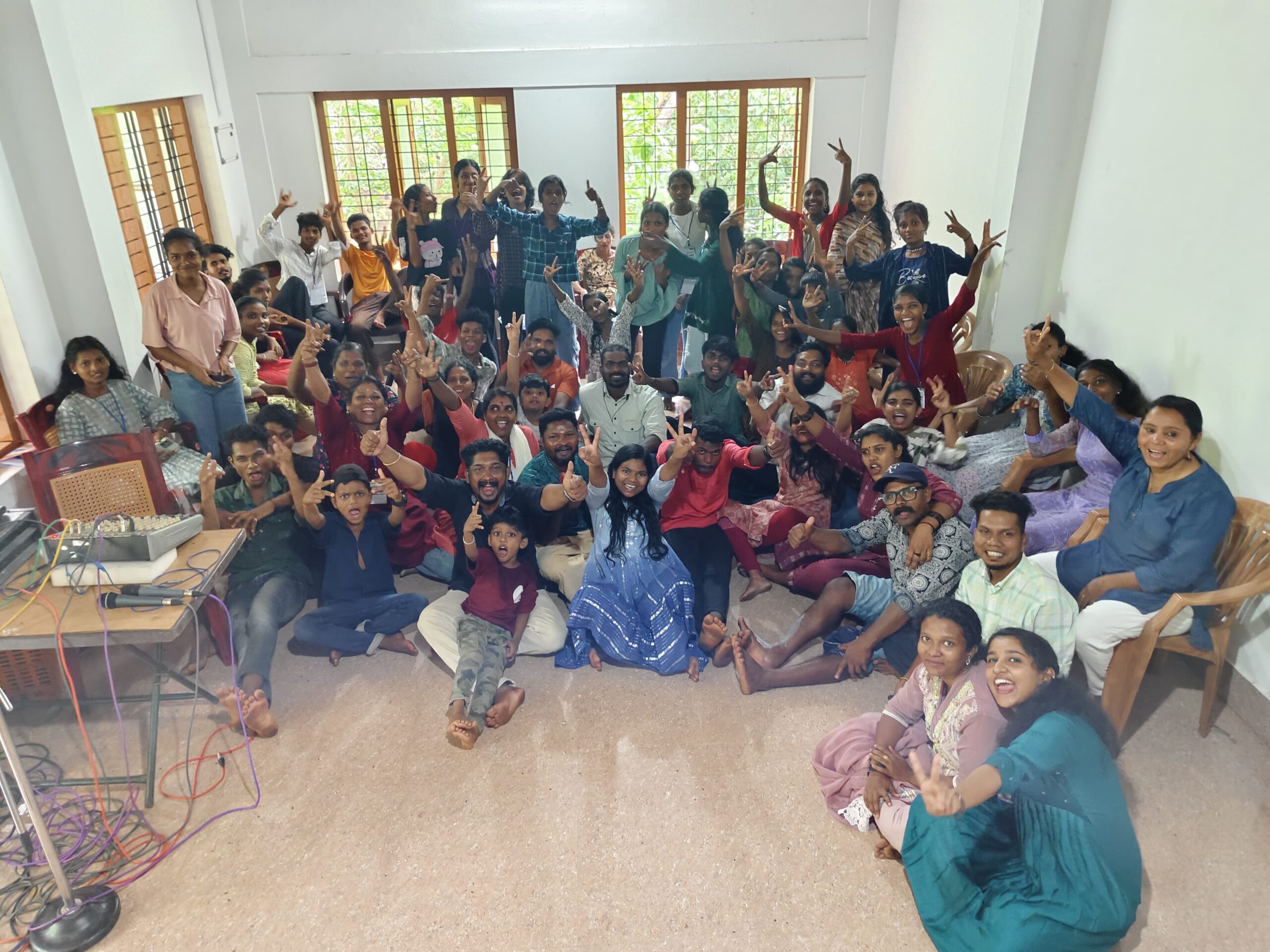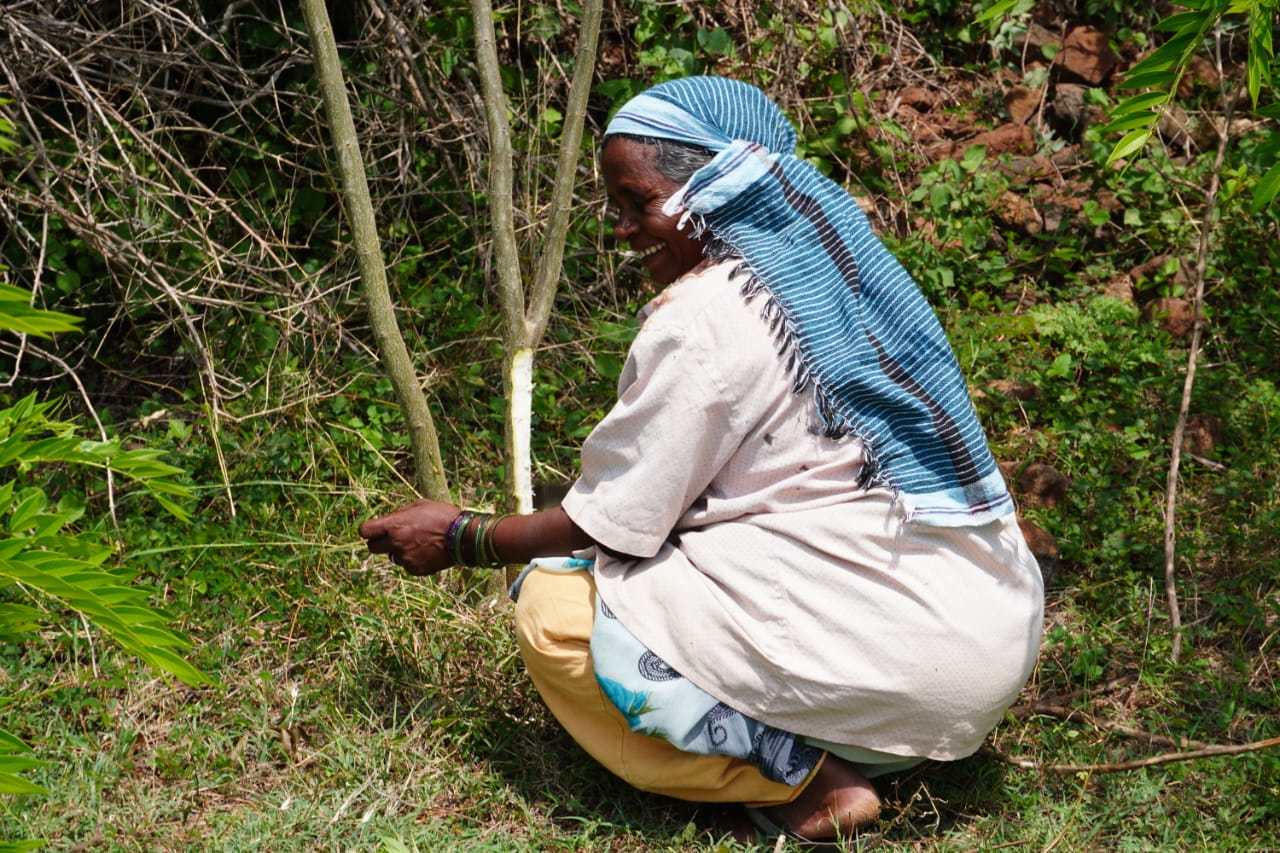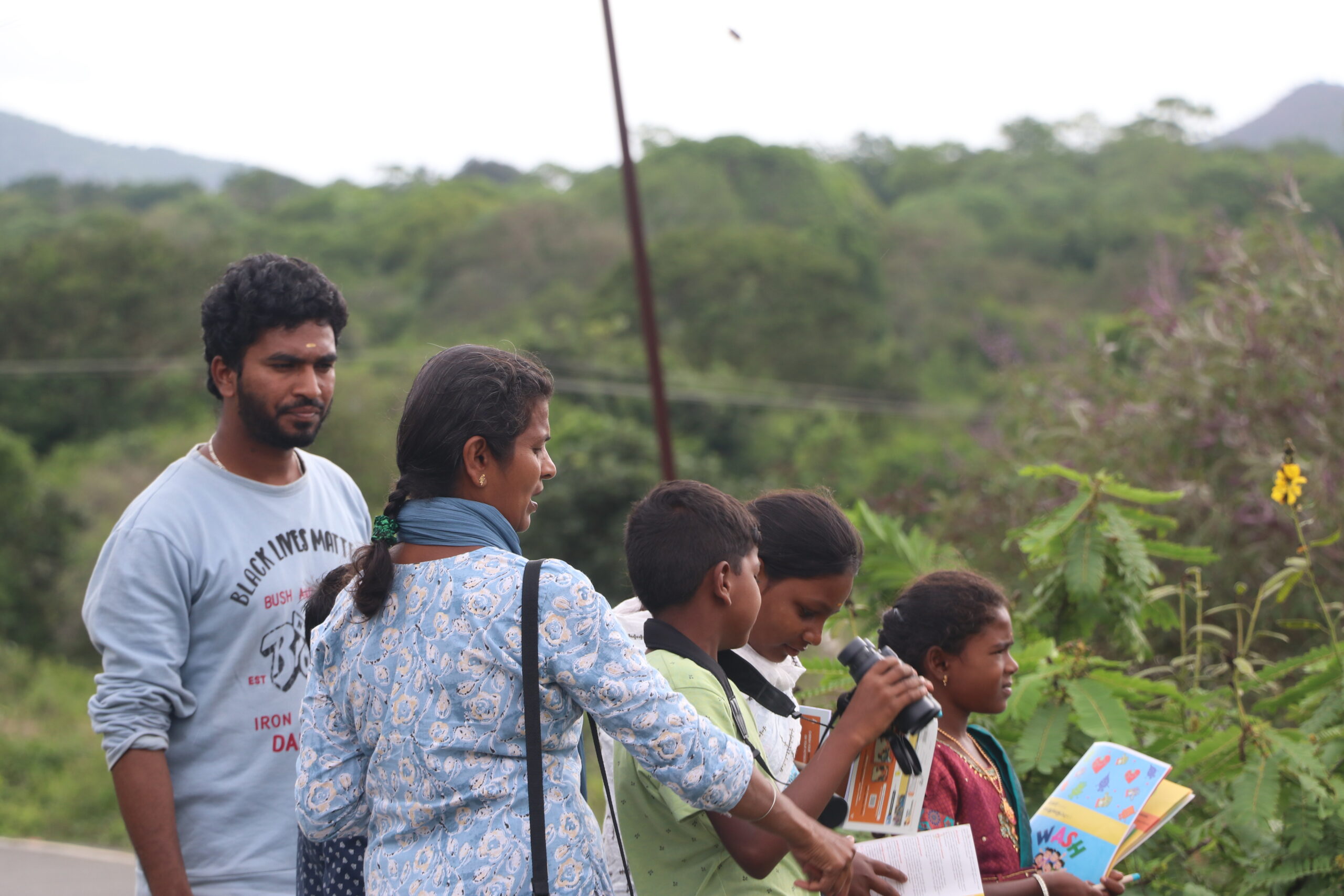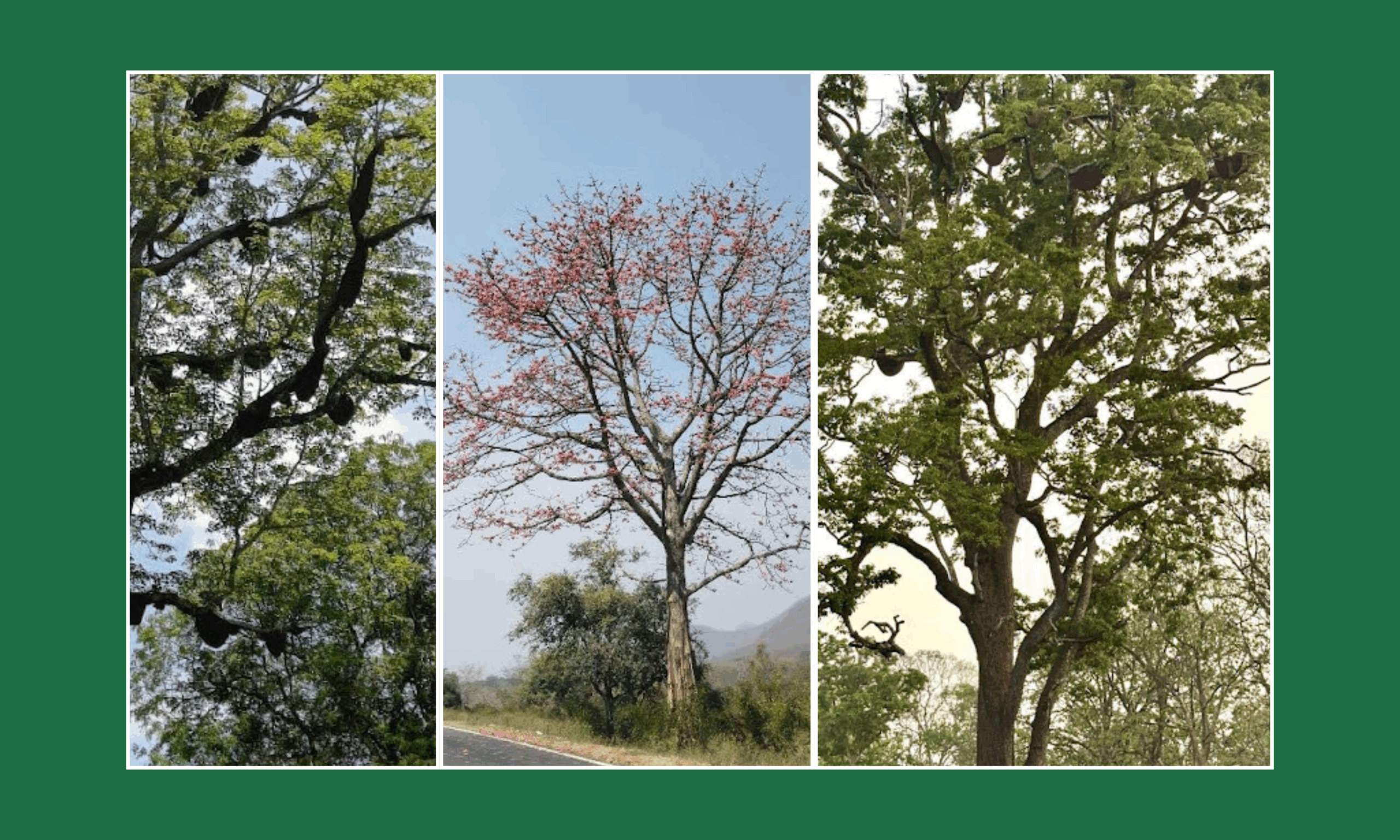By Aswathy G.V., PNC Research Consultant, Sumithra, Community Researcher, Amal, Community Researcher, and Anokha Venugopal, Communications
The Makkabare residential summer camp, held from May 15-18 in the Chaliyar View Dormitory, was organized with great anticipation for the children of tribal areas in Nilambur. Children between the ages of 13 and 20 from Aranadan, Paniya, Kattunaikan, Cholanaikan and Malamuthan communities of Nilambur participated in this camp. Over the four days, we conducted sessions on topics like tribal language, tribal literature, traditional craft techniques, and art performance. On the fourth day, we concluded the camp with a celebration of International Museum Day.
Apart from summer, it is also honey season. For this reason, we called the camp Makkabare: in the Kattunaickan language, ‘Makke’ means children, and ‘bare‘ means the biggest tree in the forest where honey comes from. Each year a lot of honey is nested in a barre, and this tree is handed down by tradition and worshiped as divine. This camp aimed to have children join together in one place to have fun and savor the sweetness of life during this honey period.
On the first day of Makkabare, we commenced with registration followed by an introduction to the camp and an explanation of the work done by Keystone Foundation. Students were divided into several groups and finished the day off with a film called Sembi, a Tamil drama that raises awareness about the Protection of Children from Sexual Offences Act.
The second day commenced with a physical education session by resource person Vinoj P.C., a physical education teacher from GHSS Eranjimangad, as well as an inauguration by Pushpavalli, block panchayat president. Following this, we held a workshop on tribal languages, where we tasked 6 mixed groups of students to translate 30 Malayalam words into their own languages. Through this exercise, students were exposed to each others’ languages. After the translation workshop, students had a discussion session, where questions placed on paper slips in a bottle were chosen through drawing lots and students had conversations in 2 person groups over the questions. Some subjects covered were favorite traditional foods, parenting, discrimination, and social media and mobile phone usage.
After this, The Filming Folks, a Nilambur based documentary collective consisting of Midhu Mohan and his team, taught campers about how to create documentaries with their mobile phones. Along with this workshop, The Filming Folks showed two of their own documentaries: Kaadirangiya Nattulsavam, which depicts the local Nilambur Pattu festival, in which each local Nilambur tribal group plays a different and important role, and Paithrukam, a film about the festival of Thirayum Poothanum (Palakkad folk performance about Poothan and Thira).
Next, our resource person Jayprakash talked to students about the forests, tribes and cultures of Nilambur. The day ended with an cultural programme where students put on their own performance, singing and dancing energetically to cinematic tunes.
The next morning, students woke up bright and early for a morning walk through the forest with Jayprakash, experiencing his words from the previous evening as they traipsed under the trees, as he pointed out all sorts of local species. The morning continued to be one of movement; with Vinoj P.C. teaching another physical education session, and Thudithalam, a folk song team from Wayanad, performing naadan pattu (folk songs) from different tribal communities.
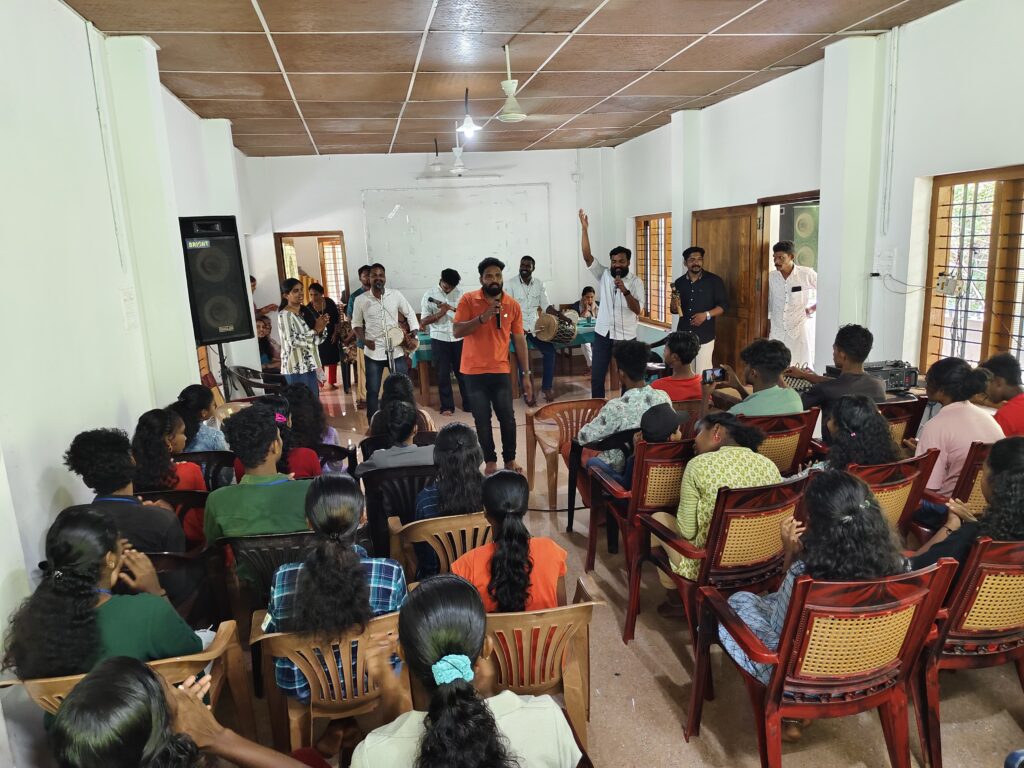
The afternoon saw a range of creative activities. First, resource person and author Seena Thachangadu, talked about her experiences and the importance of tribal literature and led a writing activity where students wrote poems, short stories, or even created drawings about rain. Next came a crafting workshop, where local Kattunaickan elders, Kadannacappu Kungan & Chathi Pulimunda, demonstrated and taught basket weaving with rattan. Finally, students were tasked with creating videos about their camp experience, which were then shown to everyone on the projector.
The last and final day of the summer camp, May 18, aligned with International Museum Day, for which the theme this year was fittingly “Museums for Education and Research”. Our aim with this day and the theme was to make the children of Makkabare aware of the artifacts that are part of their own culture. The day started with an inauguration by Dormitory Warden and local writer Shihab Poonthiruthi, followed by a host of activities and engaging discussions. In our own collection at the Nilambur field center we have more than 50 objects from Kattunaickan, Cholanaikan, Malamuthan, and Paniya communities. We introduced these objects, then discussed their values, cultural significance, and experiences. On display, we also had posters on traditional/wild foods, tubers, fish, honey, and more. Discussions on the importance of museums as well as important tribal museums in Kerala were also had.
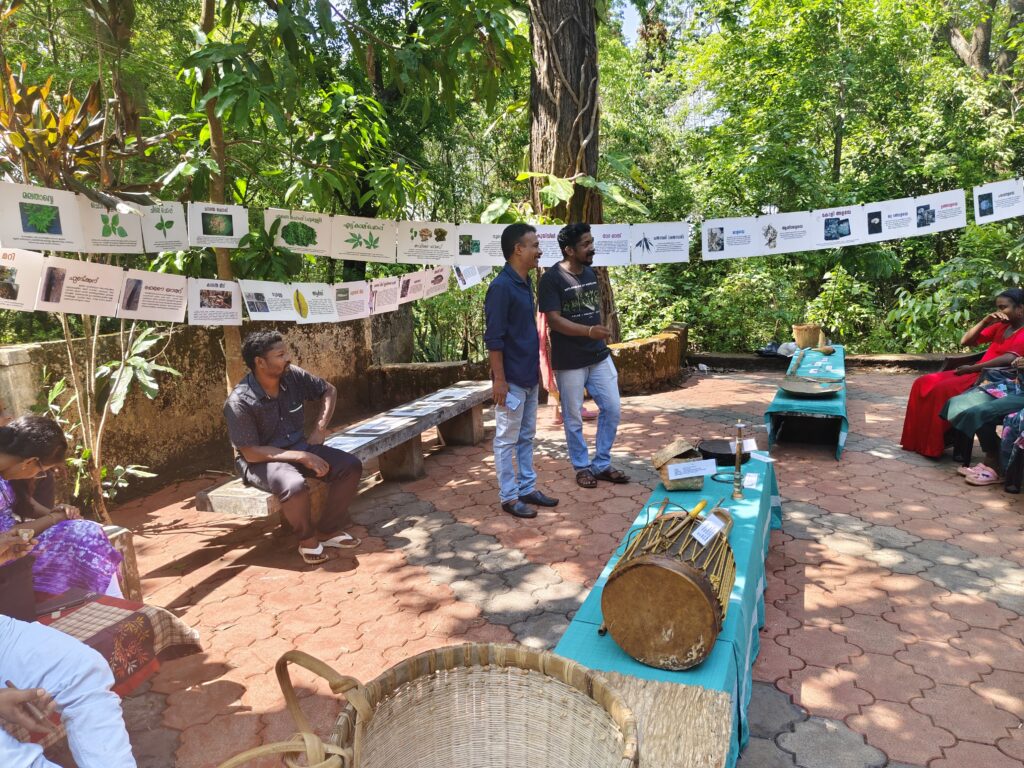
The Makkabare summer camp was ultimately a lovely and enriching set of days filled with community, learning, and a celebration of local tribes and their cultures. Our thanks to all that made this happen, as well as to Kavyanjali and Josmi for sharing their experiences on leadership and climate change, and to Rakesh for his singing.

